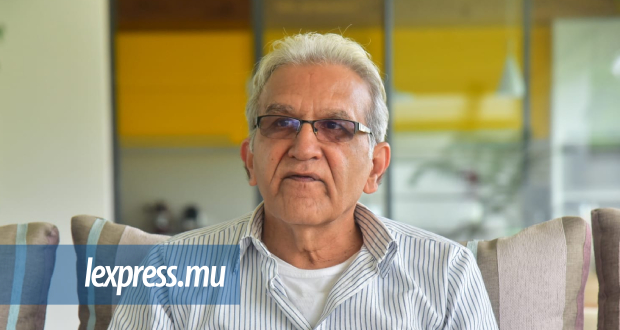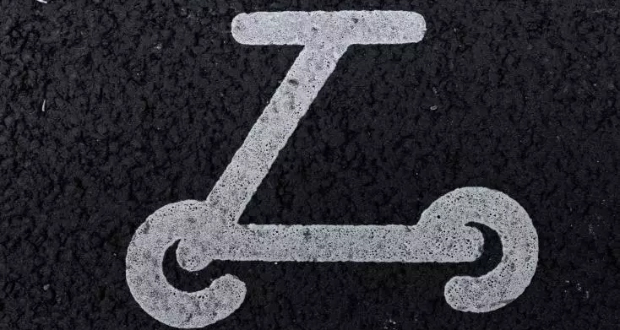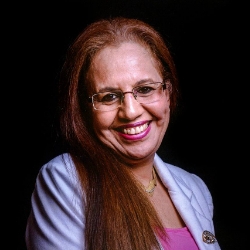Publicité
Dr Vinod Ramkoosalsing: “If you consume small amounts of alcohol daily, you have a problem”
Par
Partager cet article
Dr Vinod Ramkoosalsing: “If you consume small amounts of alcohol daily, you have a problem”

As promised last week, this interview is follow up from last week’s where Dr Ruben Dyall talked to us about his experience and journey through a hard condition: Dual Diagnosis. This week, Dr Vinod Ramkoosalsing, psychiatrist, sheds light on this condition, takes us through its components – alcoholism and bipolar disorder – and talks about depression in general. Symptoms, treatment, advice for relatives and outlook are clearly and succinctly explained.
“Very few people can go back to social drinking after dependence, detoxification and rehab. For many, even after two years of abstinence, one peg and after two weeks, they are back to square one.”
“For someone who knows what sipping a whisky with ice and soda is, giving that up for six months is a great sacrifice.”
You must have read Ruben’s interview in last week’s l’express and I understand he was your patient at some point. What do you think of the statements he made?
I think it was very brave of him to come out in the open and talk about his journey. Here is a very bright guy who had reached the pinnacle of success and then had to come down due to the illness.
Is his journey typical for someone suffering from the same condition?
You know, in psychiatry, no two patients are similar and no two cases present themselves in the same way. In Ruben’s case, he was suffering from bipolar disease and alcohol. To give you a similar situation, in medicine, when someone is diabetic, we say the patient is suffering from diabetes. Now if he has impairment of circulation in the leg or a tingling sensation and numbness… these conditions are related.
So, bipolar disease and alcoholism are related, are they?
Yes. You see, when bipolar patients are in a hypomanic or manic state, everything is possible. The sky is not the limit. So whatever they do, they do it in excess.
Whether it’s good or bad?
Whether it’s good or bad. When they are happy, they are extremely happy, when they have ideas, these are grand ideas…And when they drink, they also drink a lot. It is a well-known fact medically that when bipolar patients drink, they tend to drink in excess.
How common is bipolar disorder?
Worldwide, it’s less than 1%.
“For someone who knows what sipping a whisky with ice and soda is, giving that up for six months is a great sacrifice.”
And alcoholism?
Oh, alcoholism is much higher. Before the year 2000, 60% of the 250 beds in the acute side of Brown Sequard Hospital were occupied by patients with problems related to alcohol. With the decentralisation, these patients are now directed to regional hospitals. Worse, in these hospitals, 30 t0 35% of admissions into medial, orthopaedic and surgical wards are due to problems related to alcohol, be it jaundice, liver disease, injuries, car accidents, fractures…
Would you say that there are also many undiagnosed alcohol dependent people out there considering that there is at times an element of denial?
Yes, denial is there. Usually, patients minimise their consumption. So doctors have to ask searching questions. Also, with experience, doctors come to know the physical symptoms: a pink face for a fair-skinned person, mild tremor of the hands or the lips…So we don’t rely just on the information furnished by the patient.
At what drinking stage is one considered an alcoholic?
If you consume small amounts of alcohol daily, you have a problem because with time, to have the same effect, you have to increase the amount and you develop tolerance and with tolerance comes dependence. That means that for women, after five years, you start having complications and for a man, that happens after seven or 10 years.
In Ruben’s case, he just snapped out of alcoholism one day when he saw God, something he describes as a miracle. Does everyone have to wait for a miracle?
I don’t believe in miracles. But what I tell patients’ relatives is that one day, something will happen. It is ‘un déclic’ and the patient snaps out of it. Bipolar patients are extremely intelligent. I think what happens is that they realise that alcohol is a real problem and they stop. Some patients have been through various phases of drinking and abstinence so they end up seeing the symptoms coming and sometimes seek help in time. Ruben must have realised that on top of his condition, trouble was coming and he stopped.
What about Medication, hospitalisation, psychotherapy, rehabilitation etc.?
All these help but each individual is different. In the case of alcoholism, after detoxification and rehabilitation, if the patient remains abstinent for three to six months, it’s great. For someone who knows what sipping a whisky with ice and soda is, giving that up for six months is a great sacrifice. Relapse is part of the disease. But you keep trying and increasing the abstinence period. And there are people who remain abstinent forever. It’s of course easier to give up alcohol than heroin. So you have to wait for that déclic.
Isn’t that another way of calling a miracle?
Maybe. The main thing is to remain abstinent. Not go back to social drinking at all. What I tell my patients is: “alcohol is not meant for you”. Very few people can go back to social drinking after dependence, detoxification and rehab. For many, even after two years of abstinence, one peg and after two weeks, they are back to square one.
“Some patients have been through various phases of drinking and abstinence so they end up seeing the symptoms coming and sometimes seek help in time.”
What are the structures available to deal with alcohol dependence?
There is room for improvement. In the regional hospitals, there is a shortage of beds so alcohol users are kept for two to three days and then sent back to the same environment. In Mahebourg hospital, there is a specialised ward where they can stay longer. And there are NGOs specialising in rehabilitation.
Do the NGOs have enough resources to deal with the situation?
Some NGOs are well-equipped and are doing a good job. However, the number of patients they can take is limited.
Which means we don’t have enough resources to deal with such a scourge as alcoholism?
Yes. We should have more structures. Psychiatry is the poor parent of medicine. Government collects a lot of money through alcohol taxes. A percentage of that, with some help from alcohol importers, Mauritius Breweries, Good Will etc. should be used to deal with alcoholism. These stakeholders should contribute to the fight by devoting a small percentage of their profits to a proper structure to deal with this. What is most unfortunate too is the closure of the National Agency for the Treatment and Rehabilitation of Substance Abusers (NATRESA) in 2015. It is sad as it was doing a very good job in terms of prevention. NATRESA has its place in Mauritius but politics closed it down.
One criticism of psychiatrists in Mauritius is that they are more interested in keeping the relatives of patients happy than in treating patients. Is that the case?
No, we care for both, actually, the family and the patient. In fact, quite often, just to give some respite to the relatives, we admit the patient for a week or two. We help give them some breathing space. It’s hard for the family when you have someone at home with an alcohol problem.
So you are actually worried more about the relatives than the patient, aren’t you?
No, the patient too benefits. When he is in hospital, he is being seen by specialists, receiving treatment, taking medication, etc.
But that’s not the main reason you are admitting them, is it?
You know, sometimes during exam time, CPE, School Certificate, HSC etc., if the father is drinking and constantly making noise until the early hours of the morning, the relatives may ask for the patient to be admitted so they can deal with the exams…
But you are not babysitters or social workers, are you? You have to think about the judicious use of state resources…
We treat the patient while he is in hospital.
And when the exams are over, you release the beast back into the family?
We release them with the hope that they manage to achieve a longer period of abstinence. Sometimes, when someone is in hospital, what they see around them triggers something that may help towards recovery.
Now, who is likely to become an alcoholic? Anyone or is there a pre-disposition?
Genetically, researchers have found genes that predispose one to become an alcoholic and, in some families, you tend to find several brothers or sisters who become alcohol addicts. For women, 75% of those who find refuge in alcohol have an underlying psychiatric condition like depression, anxiety, frustration etc. For men, that is the case in only 25% of the cases. In the 75% others, it is what is called ‘alcoholism d’entrainement’. They start drinking on special occasions and then they increase in frequency until dependence sets in. This cuts across all classes.
When patients come out of alcoholism, at what point can you say that they are safe?
You can never tell. The person is safe for as long as he doesn’t touch alcohol. If the occasional drink resumes, a relapse is possible.
Is Ruben 100% safe?
Let’s keep our fingers crossed. If he doesn’t touch alcohol, he is safe. And there are many success stories. However, one must bear in mind that a diabetic who goes to a tea party doesn’t eat sweets because he is diabetic. Similarly, someone who has had a problem with alcohol should do the same about alcohol. Once a diabetic, always a diabetic. Once alcohol-dependent, you will always be vulnerable to alcohol. The recipe is simple: it’s not meant for you, so don’t touch it!
Publicité
Les plus récents






